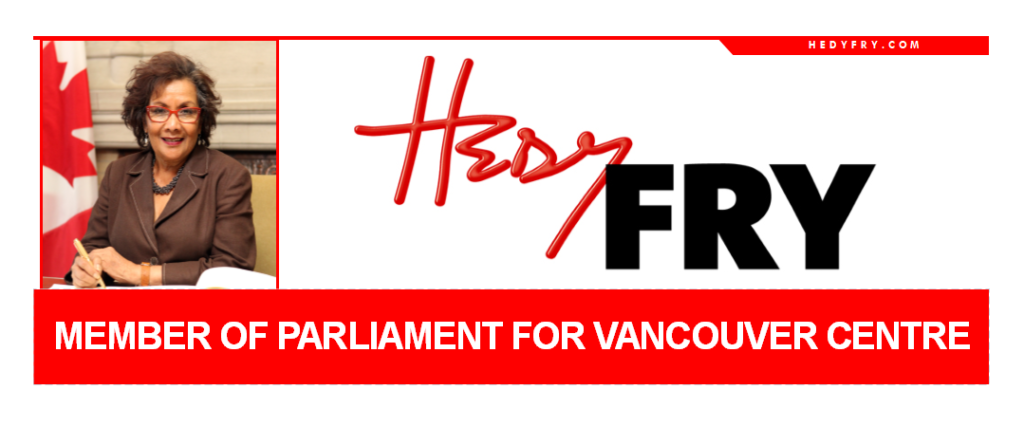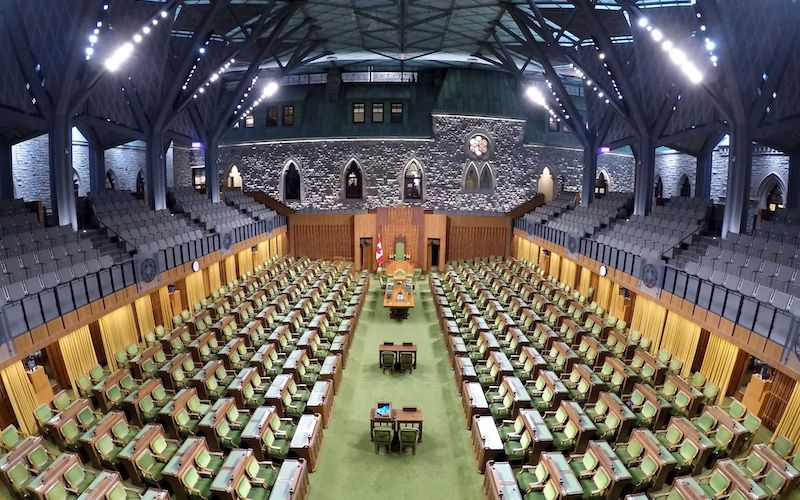
Last week I rose in the House of Commons to speak on the importance of Amending the Broadcasting Act.
“Madam Speaker, I will be sharing my time with the hon. member for Lac-Saint-Louis.
I am happy to speak to this particular bill because it would really bring us into the 21st century. As everyone has said, it was in 1991 that we amended the Broadcasting Act and we have done nothing about it since, so I am happy to speak to this amendment of the Broadcasting Act.
In 1991, we were in a predigital era. From 1991 until now, we have seen a change in how people access information and entertainment. It is through streaming on their own devices, iPads, computers or whatever. They are not accessing it the usual way anymore, so we need to get in tune with the times and move this forward.
At the same time, we have heard since 1991 from Senate committees, House of Commons committees, independent panels, and the media and cultural sectors that it is an important time for us to recognize that, while we have certain rules for Canadian media and entertainment, we do not have the same rules for the Internet giants from the United States and internationally that enter our homes every day through these various devices and are not regulated.
They have shown that they do not wish to self-regulate. They have been asked to self-regulate and they have shown they will not do that, so it is time to regulate them because we regulate Canadian content, Canadian broadcasting, Canadian news, everything about Canadian media. Therefore, Canadian media is at a total disadvantage when we look at the unregulated international media. This is not something we are doing just because we are Canadians and want to be parochial. It is not.
The European Union is saying it needs to maintain European cultural content. Australia is saying it needs to look at Australian cultural content. Everyone is concerned about the disinformation that is unregulated and spread by international giants. Our own Canadian media have to be careful about how they process information, what they say and how they say it, because they are subject to CRTC rules on this issue. We are bringing everything down to what I call “levelling the playing field”.
One of the important things about this is that 1997 was the last time Sheila Copps decided to go to bat for Canadian content, when she looked at how magazines coming into Canada were giving us news from the United States and everywhere else, but very little Canadian news. Journalism is under stress right now because we are not getting a lot of Canadian news from our own journalists as they are being laid off rapidly. Therefore, we are getting the news from international news aggregators, such as Google and Facebook, that are taking everybody else’s news from whatever source, not necessarily a source that is regulated for the veracity of its content. They are taking it from anywhere, they are aggregating it, people are reading it and they do not know what is true or what is misinformation or disinformation.
By not regulating themselves, these Internet giants are also not following rules on things like hate content or looking at the content that is spread that is very dangerous and harmful, yet our Canadian media have to follow all these rules. We are bringing this up to scratch so that we are on a level playing field.
It is also important that when Sheila Copps in the 1990s talked about Canadian content, she also looked at how she could protect the music sector. She got a lot of flak for it, but it worked out to be exactly what we needed. People were buying blank tapes, downloading everybody’s music and playing it without having to pay a charge, so she added a surtax on the buying of blank tapes. That money went into a pot so that we could create what later turned out to be a great time for Canadian music. It began to be spread around the world. We saw that the divas were mostly Canadian. We saw all of this happening.
It is time we stand up not only for Canadian content but for Canadian cultural sovereignty.
We also want to reflect that Canadian culture is very diverse. It is a culture made up of official bilingualism, of French within and outside of Quebec. The government said clearly in the throne speech that it is going to protect that. We have indigenous cultures, which are so rich. We have many ethnic and racialized cultures, along with LGBTQ voices. We know, geographically, the Atlantic provinces’ cultural content is very different from B.C.’s. We need to get to know each other as Canadians. We need to understand each other’s stories, hear them and tell them.
What I always hear from Canadian creators is that they are actually out there writing stories, etc., and it is being pilfered by other people. They are not getting any kind of reimbursement for their intellectual property. Let us talk about how we are going to reimburse Canadian intellectual property. Let us talk about how we are levelling the playing field. That is what this bill is doing.
It is not a nefarious bill. Nobody is saying that people will not have the opportunity to stream what they want. All we are saying is that the CRTC has required that Canadian entertainment must have up to 45% of its production as Canadian content. They must put money into creating that. However, we have not said this for all of the other media content we get from media giants, which are making a lot of money from Canadian content and not reimbursing that to Canadians and not reflecting the diversity of Canadian life and Canadian regionality. We do not want this in a global world.
Javier Pérez de Cuéllar, from UNESCO, said something about this back in the late 1990s. He said that globalization has one flaw to it: that the world is now in some kind of amorphous culture and we are losing a sense of our own sovereignty, our own cultural identities.
Europe has taken a step to make sure that is not going to happen. It is doing something similar to what we are doing. Australia has also taken steps to ensure this. We do not want Canadian media to be under certain restrictions and regulations, and then have international media giants spreading information, disinformation, hate and all kinds of inappropriate things on the Internet, which we cannot regulate.
This is a good time. The idea that we could get money and that they are required, like Canadian media, to put money into creating Canadian content is something that our creators need. Our music industry needs this. All of that wonderful intellectual property needs this.
Nobody has to tell us, as Canadians, what great storytellers we are, what great writers we have, what fabulous producers or content we have. We can just look at Schitt’s Creek and see it has become a major piece of Canadian storytelling and Canadian comedic acting.
We need to protect that, but more than anything else, we need to level the playing field. This is not asking the CRTC to do something nefarious. It is just asking them to make the same requirements and regulations for the international media giants, which do not have to follow any of these rules, and level the playing field for Canadian media.
They are also going to be required to contribute to Canadian content in the same way that Canadian media must do. We are also saying that they need to reflect the diversity of Canadian culture, which is very different from other international cultures. This is not something that is strange, big brother or anything like that. We are just trying to level the playing field. We are trying to give our Canadian content a break and make sure we tell and hear our own stories. This is important. The regulation of information is very important.
We look at all the panels, Senate committees and House of Commons committees, the last one being the committee I chaired that gave its report in 2017, which pointed out that we are not seeing ourselves in our own news, media and entertainment. We are not hearing indigenous voices or regional voices. We are not seeing the racialized, LGBTQ and ethnic groups within our country telling their stories.
We are unique as a nation. We are very different and we need to reflect that difference. Maybe other people streaming Canadian content out there in France, the United States or anywhere else might learn about who we are as Canadians.”
– Hon. Hedy Fry, P.C., MP Vancouver Centre (House of Commons, November 19, 2020)






